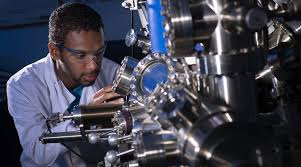Mechanical Engineers
Engineering

Jobs Description
Job Overview: Mechanical Engineer
A Mechanical Engineer is responsible for designing, developing, and testing mechanical systems and products. This role involves working on a wide range of projects, including machinery, tools, engines, and equipment, as well as overseeing the manufacturing process. Mechanical Engineers apply principles of mechanics, thermodynamics, and materials science to ensure that products function efficiently, are safe, and meet performance specifications.
Key Responsibilities:
-
Design and Development: Create detailed designs for mechanical components and systems using computer-aided design (CAD) software. Develop prototypes and conduct simulations to test the performance, durability, and efficiency of designs.
-
Project Management: Oversee the entire lifecycle of mechanical projects, from initial concept through to final production. Coordinate with cross-functional teams, including electrical engineers, manufacturing teams, and quality assurance, to ensure successful project delivery.
-
Material Selection: Choose appropriate materials for products based on factors such as strength, weight, cost, and environmental impact. Conduct material tests to verify performance under various conditions.
-
Analysis and Testing: Perform analysis and calculations to predict how systems and components will behave under stress, temperature, and other conditions. Conduct physical tests and experiments to validate designs and improve performance.
-
Problem Solving: Identify and troubleshoot issues with mechanical systems or components. Develop solutions to optimize performance, reduce costs, and enhance product reliability.
-
Prototyping: Develop and refine prototypes to test design concepts and assess functionality. Iterate on designs based on test results and feedback from stakeholders.
-
Manufacturing Support: Work closely with the manufacturing team to ensure that designs can be produced efficiently and cost-effectively. Provide technical support during the manufacturing process and make adjustments as needed.
-
Quality Assurance: Establish and enforce quality standards for mechanical products. Conduct inspections and tests to ensure that products meet specifications and comply with industry standards.
-
Documentation and Reporting: Maintain accurate records of design processes, test results, and project progress. Prepare technical reports, design documentation, and user manuals.
-
Regulatory Compliance: Ensure that all mechanical designs and products comply with relevant safety and environmental regulations. Obtain necessary certifications and approvals for products.
-
Innovation and Continuous Improvement: Stay informed about advancements in mechanical engineering, materials, and manufacturing techniques. Apply innovative solutions to improve product performance and reduce production costs.
-
Collaboration: Work with other engineers, designers, and stakeholders to integrate mechanical systems into larger projects, such as vehicles, industrial machinery, or consumer products.
Skills & Qualifications:
- Bachelor’s degree in Mechanical Engineering or a related field
- Professional Engineering (PE) license (preferred or required depending on location)
- Experience in mechanical design, product development, or a related field
- Proficiency in CAD software and other engineering tools
- Strong understanding of mechanics, thermodynamics, and materials science
- Excellent problem-solving and analytical skills
- Ability to work independently and manage multiple projects simultaneously
- Strong project management skills, including budgeting and scheduling
- Knowledge of manufacturing processes and quality control standards
- Familiarity with safety and environmental regulations relevant to mechanical engineering
- Strong communication and teamwork skills
- Attention to detail and a commitment to quality and safety
Career Path: Mechanical Engineers can advance to roles such as Senior Mechanical Engineer, Project Manager, or Engineering Manager. With experience, they may specialize in areas like automotive engineering, robotics, aerospace, or energy systems. Pursuing a master’s degree, obtaining a Professional Engineering (PE) license, and staying updated on industry trends and technological advancements can support career growth and open opportunities in leadership or specialized engineering roles.
Subscribe to Our Newsletter!

